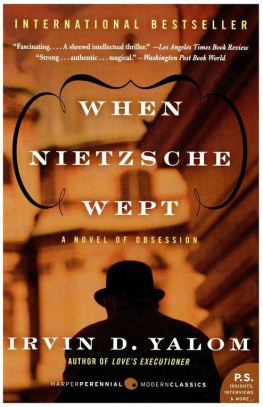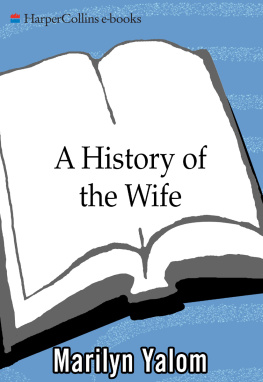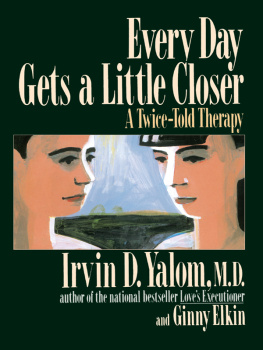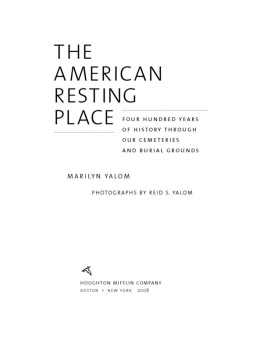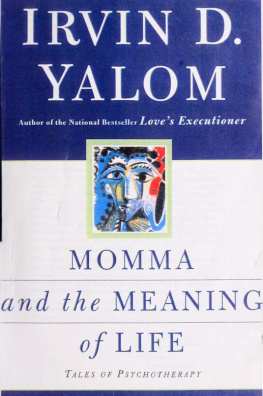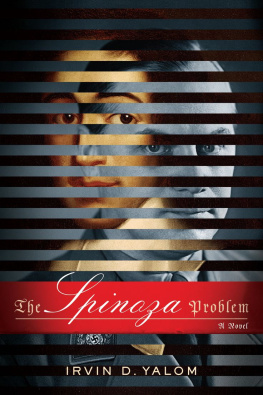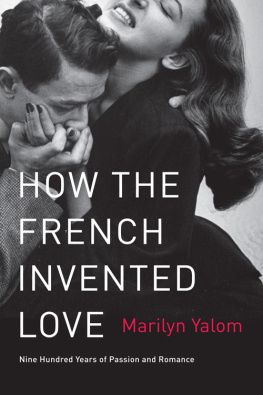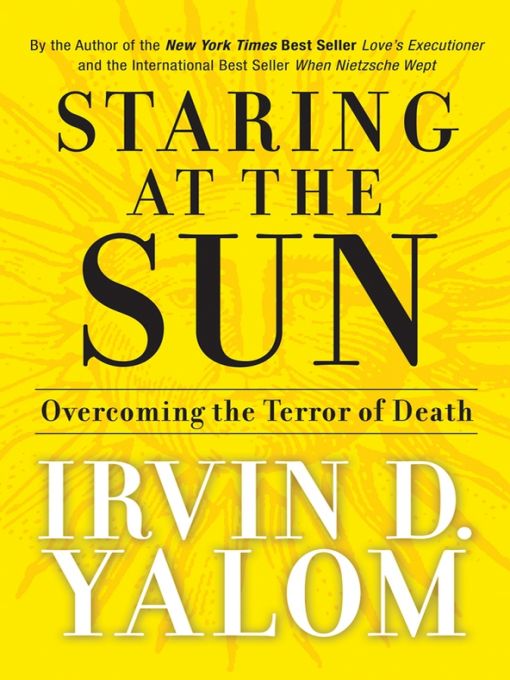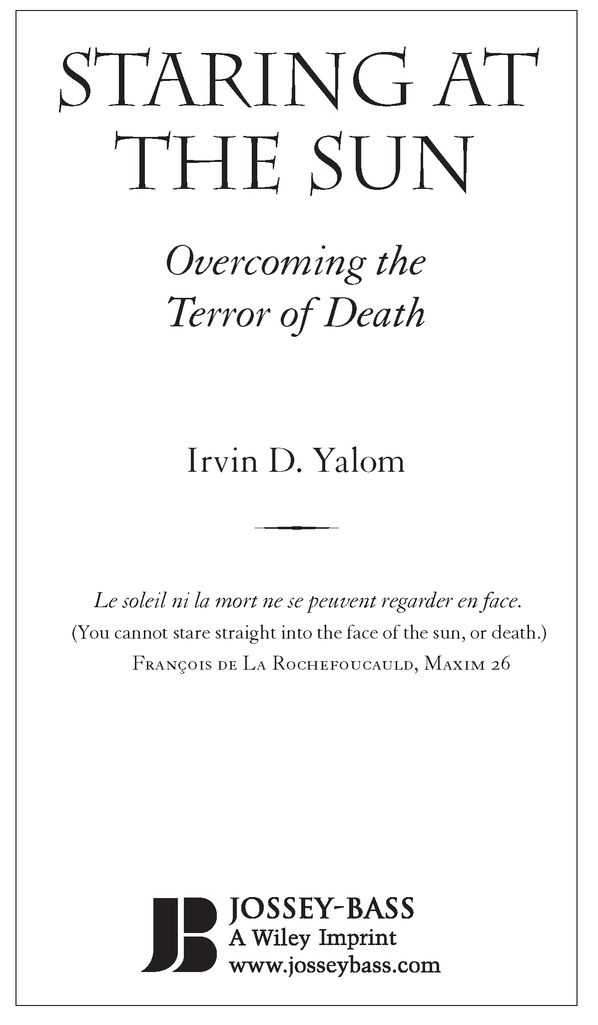Table of Contents
MORE PRAISE FOR
Staring at the Sun
Irv Yalom has written a beautiful and courageous booka book that comforts even as it explores and confronts death. Yalom helps us understand that we must all come to grips with a paradox: The physicality of death destroys us; the idea of death saves us.
George Valliant, author,Aging Well, and director of the
Harvard Medical School Study of Adult Development
In Staring at the Sun, Irv Yalom brings uncommon wisdom as a gifted psychiatrist now in his mid-seventies to a universal human experience: the terror of death. He provides a brilliant, enriching, and transforming perspective to our fears. Staring at the Sun is riveting, compelling, and ultimately uplifting reading. A crowning achievement.
Jack D. Barchas, M.D., chair and psychiatrist-in-chief,
Weill Cornell Medical College, NewYork-Presbyterian
Hospital, Payne Whitney Manhattan and Westchester
In Staring at the Sun, Dr. Yalom shares with us the problems of his patients linked to their mortality, his compassionate, healing insight into their death anxiety, and perhaps most movingly, his own feelings and personal experiences with death. While the existential realities of death, isolation, and meaninglessness may seem at first bleak and full of despair, Dr. Yaloms existential approach helps his readers frame these realities in positive and meaningful ways that foster personal growth and intensify our connections to others and to the world around us.
Harold Ramis, actor, writer, and director (Ghostbusters,
Groundhog Day, andAnalyze This)
Dedicated to my mentors who ripple
through me to my readers:
John Whitehorn, Jerome Frank,
David Hamburg, and Rollo May
Preface and Acknowledgments
This book is not, and cannot be, a compendium of thoughts about death, for throughout the millennia, every serious writer has addressed human mortality.
Instead, this is a deeply personal book stemming from my confrontation with death. I share the fear of death with every human being: it is our dark shadow from which we are never severed. These pages contain what I have learned about overcoming the terror of death from my own experience, my work with my patients, and the thoughts of those writers who have informed my work.
I am grateful to many who have helped along the way. My agent, Sandy Dijkstra, and my editor, Alan Rinzler, were instrumental in helping me shape and focus this book. A host of friends and colleagues have read parts of the book and offered suggestions: David Spiegel, Herbert Kotz, Jean Rose, Ruthellen Josselson, Randy Weingarten, Neil Brast, Rick Van Rheenen, Alice Van Harten, Roger Walsh, Robert Berger, and Maureen Lila. Philippe Martial introduced me to the La Rouchefoucauld maxim on the title page. My gratitude to Van Harvey, Walter Sokel, Dagfin Follesdal, my dear friends and long-term tutors in intellectual history. Phoebe Hoss and Michele Jones provided excellent editing. My four children, Eve, Reid, Victor, and Ben, were invaluable consultants, and my wife, Marilyn, as always, forced me to write better.
Most of all I am indebted to my primary teachers: my patients, who must remain unnamed (but they know who they are). They have honored me with their deepest fears, given me permission to use their stories, advised me about effective identity disguise, read some or all of the manuscript, offered advice, and taken pleasure in the thought of rippling their experience and wisdom to my readers.
Chapter 1
THE MORTAL WOUND
Sorrow enters my heart. I am afraid of death.
GILGAMESH
Self-awareness is a supreme gift, a treasure as precious as life. This is what makes us human. But it comes with a costly price: the wound of mortality. Our existence is forever shadowed by the knowledge that we will grow, blossom, and, inevitably, diminish and die.
Mortality has haunted us from the beginning of history. Four thousand years ago, the Babylonian hero Gilgamesh reflected on the death of his friend Enkidu with the words from the epigraph above: Thou hast become dark and cannot hear me. When I die shall I not be like Enkidu? Sorrow enters my heart. I am afraid of death.
Gilgamesh speaks for all of us. As he feared death, so do we alleach and every man, woman, and child. For some of us the fear of death manifests only indirectly, either as generalized unrest or masqueraded as another psychological symptom; other individuals experience an explicit and conscious stream of anxiety about death; and for some of us the fear of death erupts into terror that negates all happiness and fulfillment.
For eons, thoughtful philosophers have attempted to dress the wound of mortality and to help us fashion lives of harmony and peace. As a psychotherapist treating many individuals struggling with death anxiety, I have found that ancient wisdom, particularly that of the ancient Greek philosophers, is thoroughly relevant today.
Indeed, in my work as a therapist, I take as my intellectual ancestors not so much the great psychiatrists and psychologists of the late nineteenth and early twentieth centuriesPinel, Freud, Jung, Pavlov, Rorschach, and Skinnerbut classical Greek philosophers, particularly Epicurus. The more I learn about this extraordinary Athenian thinker, the more strongly I recognize Epicurus as the proto-existential psychotherapist, and I will make use of his ideas throughout this work.
He was born in the year 341 B.C.E., shortly after the death of Plato, and died in 270 B.C.E. Most people today are familiar with his name through the word epicure or epicurean, to signify a person devoted to refined sensuous enjoyment (especially good food and drink). But in historical reality, Epicurus did not advocate sensuous pleasure; he was far more concerned with the attainment of tranquility (ataraxia).
Epicurus practiced medical philosophy and insisted that just as the doctor treats the body, the philosopher must treat the soul. In his view, there was only one proper goal of philosophy: to alleviate human misery. And the root cause of misery? Epicurus believed it to be our omnipresent fear of death. The frightening vision of inevitable death, he said, interferes with ones enjoyment of life and leaves no pleasure undisturbed. To alleviate the fear of death, he developed several powerful thought experiments that have helped me personally face death anxiety and offer the tools I use to help my patients. in the discussion that follows, I often refer to these valuable ideas.
My personal experience and clinical work have taught me that anxiety about dying waxes and wanes throughout the life cycle. Children at an early age cannot help but note the glimmerings of mortality surrounding themdead leaves, insects and pets, disappearing grandparents, grieving parents, endless acres of cemetery tombstones. Children may simply observe, wonder, and, following their parents example, remain silent. If they openly express their anxiety, their parents become noticeably uncomfortable and, of course, rush to offer comfort. Sometimes adults attempt to find soothing words, or transfer the whole matter into the distant future, or soothe childrens anxiety with death-denying tales of resurrection, eternal life, heaven, and reunion.


